Seducing the imagination about whom you see on the pages of the book.
I made one day free of writing and apparently my mind could not stand it. How else to explain that during a nap after lunch (actually after breakfast) I dreamed about writing. That's why I decided that today’s post will be about movies, books and what we imagine when we no longer have to imagine.
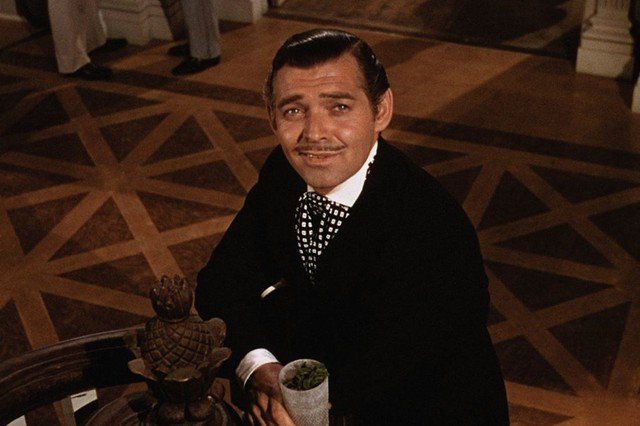
One can often come across the Internet on the claim that someone prefers to read a book before watching the adaptation so that the film does not affect his imagination during the reading. Equally often, we encounter the statement that someone has changed their approach to the book or the character after watching the adaptation. Both of these statements have always aroused (and awaken) reflection in me - how exactly movie adaptation influent our perception of the content of the book. Do we really, immediately change the imaginary faces of the characters, to the faces of the actors. Is the vision from the film so clear and powerful that it changes our ideas and sympathies? Or maybe there is no regularity.
It should start with the fact that when it comes to the description of the character's appearance, the author and the reader are always a bit on the war path. Regardless of how accurate the description of the characters can be found in the book, there is no guarantee that we will recreate it in the head using the author's instructions. How will we see the character will be determined by a lot of factors - what faces we have seen in our lives, what association will cause us the name, what person from relatives or friends we will "substitute" for the hero, whose photo the publisher puts on the cover. We all know this phenomenon perfectly well - no one is surprised, everyone has their own imagination. The only question is how do the films and the author have to this fight - which give an unambiguous vision of how the hero looks.
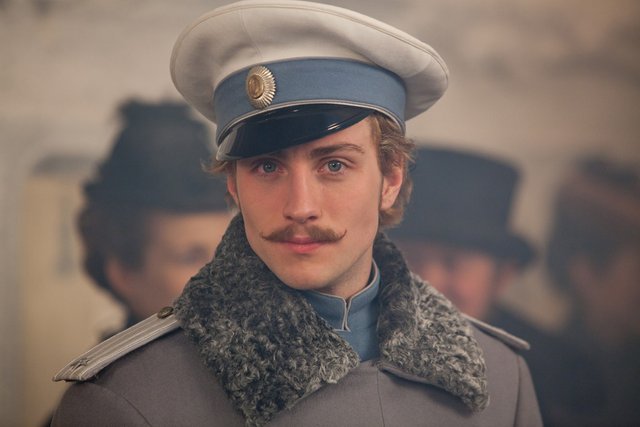
First of all, the whole phenomenon should be divided into the parts. So we have an imaginary hero. Not necessarily consistent with the author's vision. When it comes to movie adaptation most of us intuitively know if the actor suits them or not. Take the example of Anna Karenina - when Joe Wright announced that Wronski will be played by Aaron Tyler -Johnson, I knew straight away that I would rather not like the film. Why? Because it was not Wroński (or even similar) to which I created years ago. Too young, too bright, too childish. Okay - but after all, the casting itself does not determine the quality of the role. I agree there are many cases where the actor does not fit (at least according to this internal intuition) and plays well enough that we understand his hero's concept - again the example from the filming by Joe Wright - Matthew Mcfadyen maybe he was not the Darcy I imagined, but he played well in the film. Well enough that I saw in his role elements that I liked in the hero. However, even a well-played role in the film does not guarantee that the figure in this shape has sat down our imagination.
Sometimes our imaginary hero has to meet with some vision captured in popular culture - mostly from adaptation. Again, look at Darcy this time performed by Colin Firth. It is rare for an actor and a character to get lost with each other. It rarely happens to be so unequivocally declared that it is an ideal performer of this role, matching the description and the intentions of the author. In this case, probably more often Darcy imagined has the features of Colin Firth. Even if it is the easiest way to reach for such a reference. But at least in my case, this mechanism never happened. So bright Colin Firth is indeed perfect Darcy. Perhaps the best of all previous screenings. But what of it since my Darcy always looked completely different. One does not interfere with the other - at least in the case of the character who had more than one incarnation.
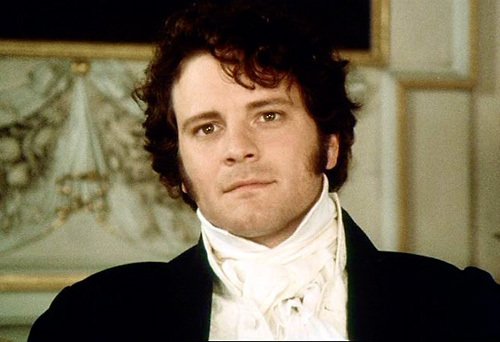
It is worse when in popular culture we have a very strongly rooted image of the hero - who in contrast to the heroes of the classics did not earn more faces. Here I reach for Harry Potter because it is a good example, books and films were almost created together - influencing each other. I admit to you honestly - regardless of the descriptions and illustrations after the first movie, Snape in my head has always had the face of Alan Rickman. What was a bit problematic, especially where the description from the book did not want to go down with a cinema vision. Similarly for Harry himself - I gave him the face of Daniel Radcliffe in the imagination without any problems. But at the end. For example, the vision of Hogwarts never coincided with what was shown in films. Hogwarts was bigger, completely differently situated and differently illuminated. Which does not change the fact that it seems easier to adopt a film vision when we deal only with one version of history.
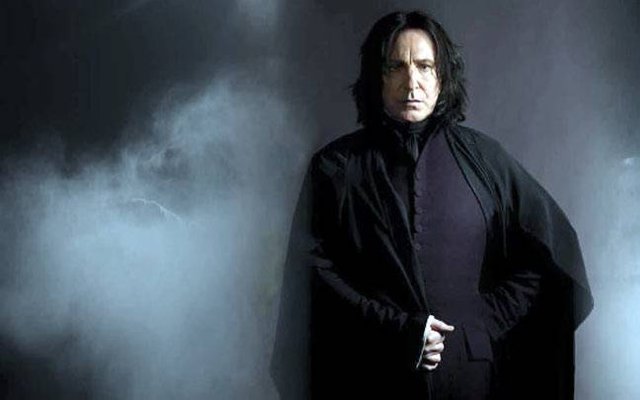
The other thing is not so much the faces of the actors (replacing the character’s faces in the imagination), but the surroundings. Here, I always had the most problems. Watching The Hunger Games, I could not find in the film even the shadow of the world that I imagined during reading. Although the vision of the creators is consistent and even consistent with the book, it is far from what I saw during the reading. Anyway, it seems that in the case of children's or young adults literature, it is not only the hero’s looks but also his surroundings are extremely important. I may like the musical of Mary Poppins but it will always be something completely separate from the book - mainly because it happens in a house that would not even stand next to the one I had in my mind when I listened to the books (my mother read it to me when I was small), just like with Annie from the Green Gables, how it annoyed me when I saw the adaptations that everything is rearranged and in the wrong places. What again is not the director's fault and does not necessarily affect whether the adaptation is objectively successful or not.
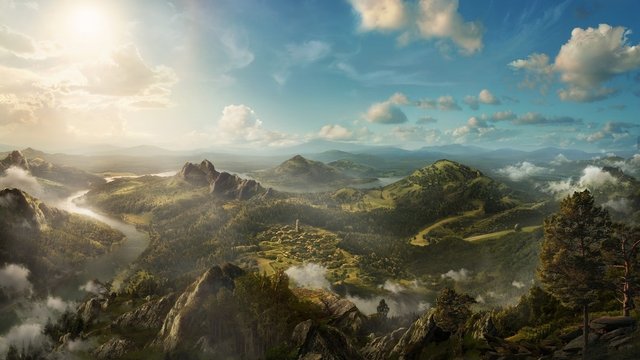
Interestingly, sometimes it happens that the creators hit the right concept of the world, and completely replacing our ideas. I remember now only one example where I had no objections (although there were much more such cases). Middle-earth from Jackson’s stories, I may not like Minas Tirith but it is Middle-earth, which my imagination has not created but the vision of the film blends with the the vision of my imagination. And now the entrance to Rivendell in my mind is like from movies, but the buildings stayed different. So even during watching the movies, I know that what I see on the screen is Middle-earth and it looks like it.
It is interesting how much we can argue over whether someone fits the role or not - even if it does not necessarily fit perfectly with our imaginations. Not so long ago I was having a discussion with a friend about Jane Eyre's (okay it could have been ages ago) and who was better suited to the role of Rochester - Michael Fassbender or Toby Stephens. With all my love for Fassbender, I loudly and vigorously opted for Stephens. At the same time, none of them (in my opinion) meet the basic criteria for playing the hero - because the novel described Rochester different and that's the reason I always have in my head, that main hero should be ugly, or at least should not be as handsome as the mentioned actors. But this is interesting - on the one hand, we know who would be suitable and who not - on the other - we often put aside our own imaginations, or trim them so that they fit the actors. Although then we take the book again and we realize that there is nobody who would be able to give a good picture of what we imagine. For example, because of our private emotional relationships, with heroes, places or specific moments of the novel.
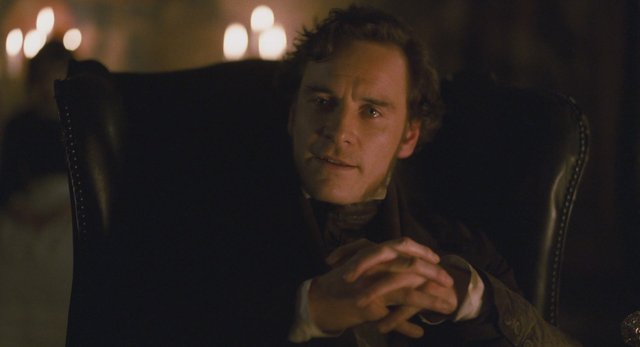
I have to refer to my own experiences again. In the case of Gone with the Wind, I first saw the film. To my surprise my brain immediately accepted Clark Gable as the only right Rhetta Butler. I can not imagine him with a different face to such an extent that I was not able to play in inventing the contemporary cast to the film. But that's basically everything - all other characters in the book looked completely different in the imagination than those in the film. What's more - their surroundings, clothes and other small details looked different. The film, although very good, has not been the least dominant over the imagination. In turn, in the case of Shining (I first saw movie) nothing happened, both the heroes and the Panorama hotel remained unchanged. Based on one holiday home from early childhood, which popped in my head when King described the hotel in the mountains. Anyway, this is fascinating - like hearing a slogan, memory draws a picture from a large catalog, slightly modifying it for the needs of the story.
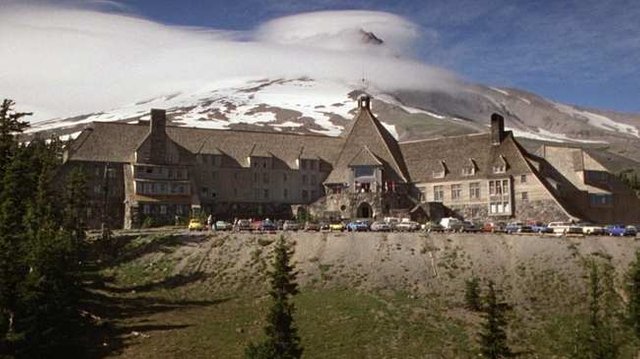
To say that there is no rule is probably not enough. Every case of meeting our imaginations and film version is different. It all depends on how well we see the heroes, how we choose their features, how we build the world described by the authors in our imagination. Sometimes it's easy to convince us to a film vision. I have the impression that this is particularly successful when we are delighted with the film's creation and we really want to find an extension or continuation in the book. Then the ”cast" become the book’s characters and being able to stay with us a little longer. I do not have the slightest doubt that when I start reading novels about Ross Poldark, I will have to agree on the features of Aidan Turner. Even if the author of the book wouldn't probably agree with the actor's choice. But there are also cases when we know what we see and nothing will change that. Even a well-chosen actor who plays his role well. It's a good way to go because we can enjoy the movie and at the same time bring the unchanged vision into our heads. Getting two stories for the price of one.
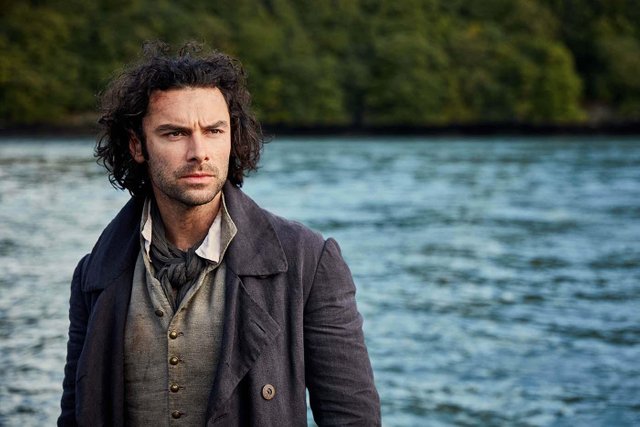
At the same time it is worth considering the question of representation for a moment. It's much easier to achieve it in books than in a movie. The characters are simply written without paying attention to whether they will attract viewers when placed on posters. When ethnicity, the color of the skin or the hero's disability changes in films - so that it seems more profitable, it is likely that it will affect the vision of the readers. It is true that readers tend to bypass the pattern of what they do not like in descriptions (often the color of the skin), but it does not change the fact that the lack of diversity and representation on the screen can affect the way we perceive the characters of the books. Especially if someone reaches for a book after watching the movie. This is one of those things that you do not necessarily think about, but we all realize how vulnerable we are to suggestions. While the issue of eye growth or color is not always important, other distinctions are quite obvious (unless they play no role in the writer's concept, but this is rare).
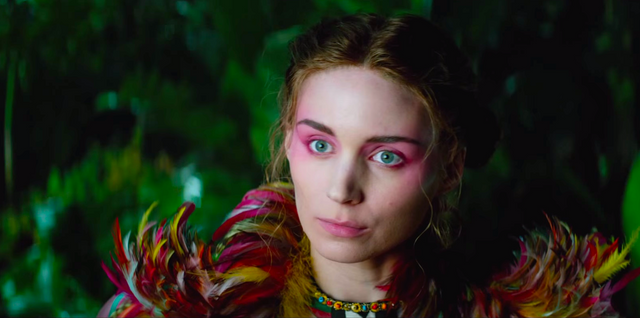
I was never afraid to confront my imaginary vision of the world or characters with films. What's more - the more adaptations I watched, the more often I was in this ideal situation - the cinema vision and my vision never intertwined. Perhaps ultimately, this is the best way out. On the other hand I never had a problem with the fact that Hollywood cast living in my imagination during reading, it's always somewhere in the back of my mind, mainly because most of the time they were always good casting choices. So it seems that there is nothing to be afraid of - neither reading before watching nor watching after reading. Our imagination is probably stronger than any unambiguous messages and will always add something - even if we read a book after a multiple screening of the film. Which does not change the fact that sometimes it is hoped that someone will finally see exactly the same as us. And I will show it in such a way that we will be able to give our imagination a moment off. Although I doubt it would ever happen. But you can dream.
Ps. Pan is not the adaptation of Peter Pan, which does not change the fact that if we choose a white actress for the role of an Indian, some people will displace this representation while reading (though in the case of Peter Pan you are so stereotypical that you can wonder if it is so great loss).
Hi anaerwu,
Visit curiesteem.com or join the Curie Discord community to learn more.
Thank you @curie.
Posted using Partiko iOS
@curie I was wondering about the fact that none of these pictures have sources. I was under the impression that was a requirement. Just curious.
Yes, I always forgot to put sources, I have to start being more conscious about this. Thank you for reminding me about that.
Congratulations @anaerwu! You have completed the following achievement on the Steem blockchain and have been rewarded with new badge(s) :
You can view your badges on your Steem Board and compare to others on the Steem Ranking
If you no longer want to receive notifications, reply to this comment with the word
STOPTo support your work, I also upvoted your post!
Hello again @anaerwu!
I agree with you that sometimes these generation, people would rather switch to google instead of holding an actual book. Even the books that were taken from a book, they would still resort to watching the movie.. much more to read first the book before watching the film..
Guilty! I have not read some books of the books inspired movies. The realization hits me after wathimg the movie afterwards. I more eager to read whats the book says. I bet a lot has been cut down, who knows.
I think I have a similar experiences when I got the chance to read the book about DaVinci Code. I was frustrated that the lead role was played by Tom Hanks. I have no issies about him though, it was just I had pictured someone else in my mind and it was not definitely him nor not even close.. hahaha.. some events also had been cut down or shorten down.
I guess your right, representation does matters in bringing the book to life.
Cheers! ❤
Posted using Partiko Android
Thank you for sharing your opinion. I had the same problem with based on novel movie Never Let Me Go, I think that both the movie and book are great but in my mind, the main characters look completely different than Keira or Andrew. But that's how it works at least I can share my thoughts with others.
Haha i thought it was just me.. im glad you had shared your thoughts atleast we are not alone in this thing.. well maybe you are right, maybe that is just how it goes. We have different views and perceptions of things.
Posted using Partiko Android
You make some very valid observations on the points about expectations of reading the book vs the cinema version. I have read many books that the movie did not live up to, or follow the book as I would have expected. But I have also seen movies, having not read the book, that made me want to read the book and appreciate the full story.
There are a situation when a movie script is written by the author of a novel, that was in case Kazuo Ishiguro Never Let Me Go, and in my opinion, both the movie and book were very good. Yes I wrote a bit about expectations but mainly in case of how characters should look like, of course, I point few adaptations with a perfect scenography, but my first idea about this was who, we see in our imagination and how it works with the movie.